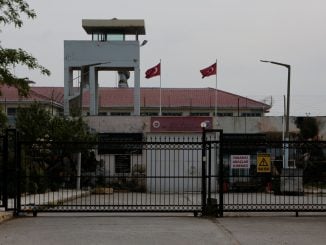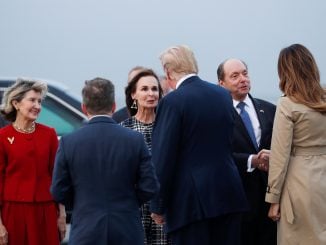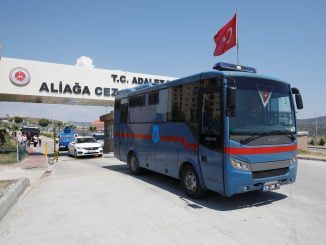ANKARA, Turkey — The first high-level talks aimed at reducing tensions between Turkey and Greece in five years took place behind closed doors on Monday.
The summit of senior officials came after a year that saw the two NATO members come to the verge of conflict in the eastern Mediterranean — a crisis that pushed the European Union toward imposing sanctions on Ankara.
The exploratory talks at Istanbul’s Dolmabahce Palace were the 61st round of meetings between the frequent rivals since discussions were launched in 2002.
Ibrahim Kalin, the spokesman for Turkish President Recep Tayyip Erdogan, attended the meeting and stressed Turkey’s commitment.
“Under the strong leadership of our president, it is possible to solve all problems, including the Aegean, and we have the will for this,” he tweeted. “Regional peace and stability is in everyone’s interests.”
Turkey’s state-run Anadolu news agency cited diplomatic sources as saying steps to address recent developments were discussed at the four-hour meeting.
However, Athens was more reserved in its remarks.
“These are not negotiations and do not have a binding effect,” Greek government spokesman Christos Tarantilis said Monday. “The aim is to pick up the thread from the point where contacts were interrupted in 2016 to see if there is a point of convergence in order to lead us to negotiations.”
He added that future talks would be limited to the demarcation of economic zones and the continental shelf in the Aegean and east Mediterranean.
Turkey has previously called for other issues, such as air space and the demilitarization of Greece’s Aegean islands, to be included.
Since the last round in March 2016, Turkey has encouraged thousands of migrants to cross the Greek border and sent gas exploration ships into waters claimed by Greece and Cyprus.
Confrontation in the seas around Cyprus and the Greek island of Crete last summer saw warships shadowing one another, leading to a collision between Turkish and Greek vessels on one occasion.
As well as addressing tensions between the frequent rivals, Ankara hopes the talks will smooth relations with the European Union and convince the new Biden administration in Washington of its reliability as an international partner.
Trust between Turkey, Europe and the U.S. has been eroded in recent years by issues including refugees, Ankara’s foreign policy, the purchase of Russian air defense missiles and human rights.
Turkey’s halt to its search for energy reserves in the eastern Mediterranean and an easing of the fiery rhetoric that had alarmed European leaders has paved the way for the Istanbul talks.
Last week, Foreign Minister Mevlut Cavusoglu visited Brussels to meet EU foreign affairs chief Josep Borrell and to stress Ankara’s desire to reset relations. That message is one that’s been backed by Erdogan, who has retreated from remarks such as those made in October in which he questioned the mental health of French President Emmanuel Macron.
Economic affairs also weigh heavily in Ankara’s thinking. While the coronavirus pandemic has sowed deep financial problems, tensions between Turkey and the EU, its main trading partner, have also played a role.
Further U.S. sanctions — Washington imposed penalties last month over the purchase of Russian missiles — are another concern after Secretary of State Antony Blinken accused Ankara of “not acting as an ally should.”



